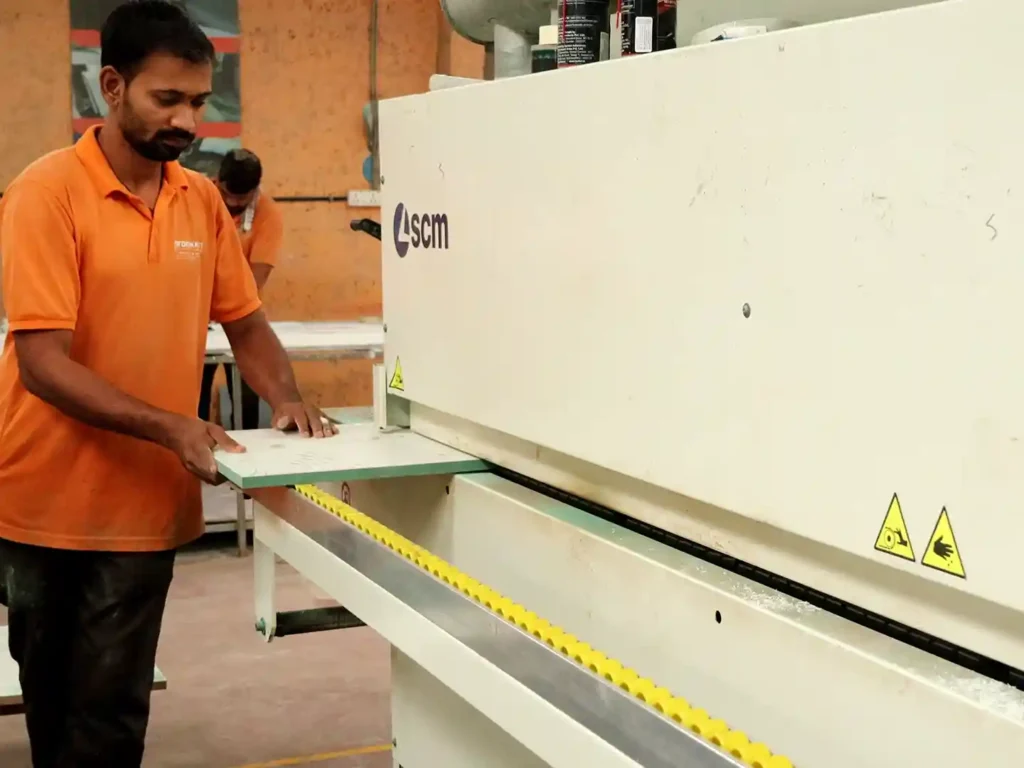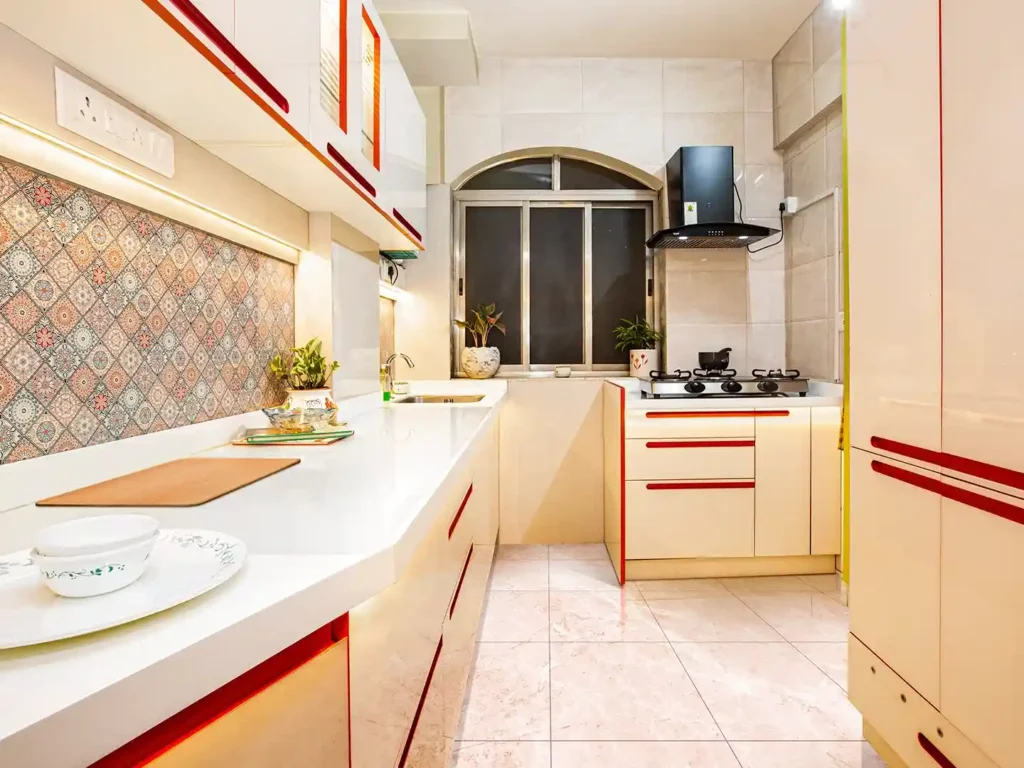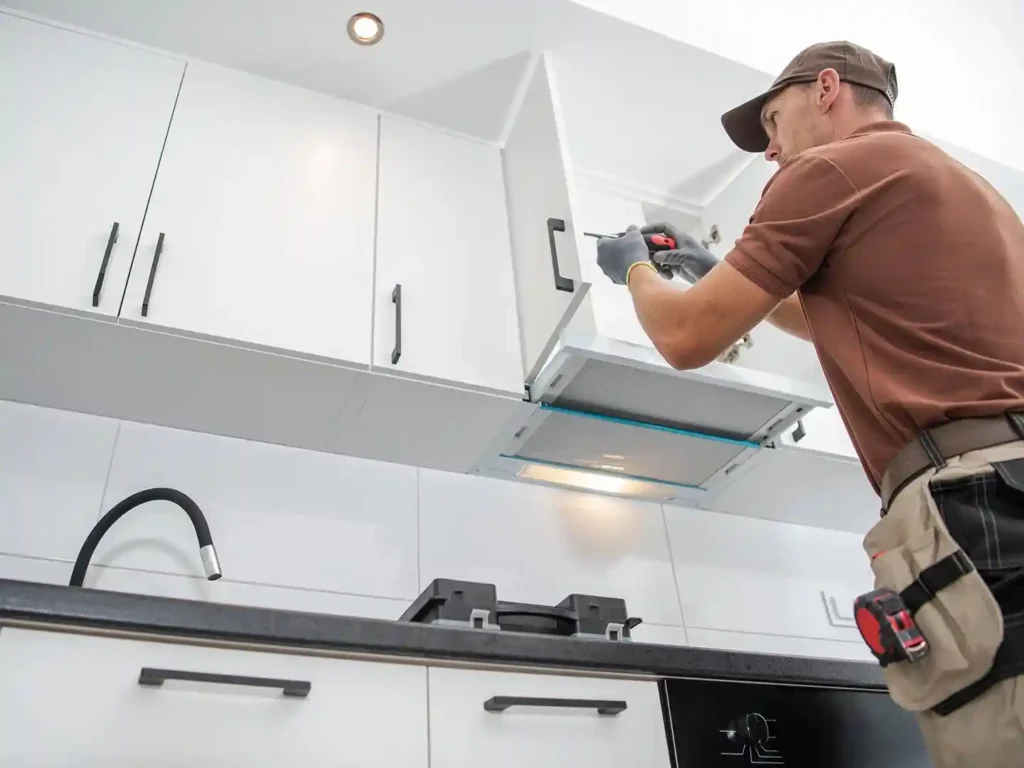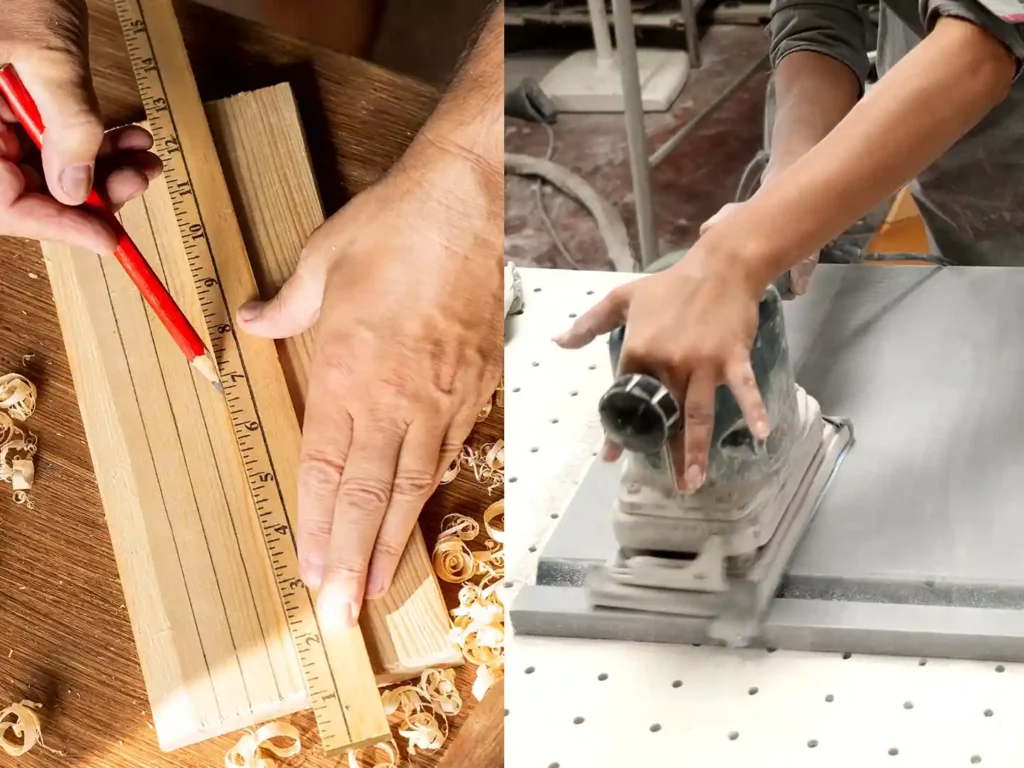Introduction: The kitchen is often referred to as the heart of the home, a place where families gather to share stories, love, and create memories. In today’s fast-paced world, where time is a precious commodity, the need for efficient and hassle-free solutions in the kitchen is more important than ever. This blog explores the benefits of opting for a modular kitchen from an architectural company over traditional carpentry methods in the Indian context.
1. Time Efficiency:

In the modern era, with the demands of work and personal life, time-saving solutions are essential. Modular kitchens are pre-fabricated and assembled at a factory, minimizing the time required for installation at home. This is in contrast to traditional carpentry methods that involve on-site construction and can be time-consuming.
2. Customization and Design:

Modular kitchens offer a wide range of customization options to match individual preferences and requirements. Architectural companies bring a creative vision to the design process, resulting in a kitchen that reflects the homeowner’s style. This level of customization is often not achievable through traditional carpentry.
3. Quality and Precision:

Architects bring technical expertise and attention to detail to the design and construction of modular kitchens. The materials are manufactured in controlled environments, ensuring a higher level of precision and finish. Traditional carpentry may lack the same level of precision due to the limitations of on-site construction.
4. Longevity and Durability:

A well-designed modular kitchen is built to last. Architectural companies consider the longevity of the kitchen, ensuring that the materials and design choices are durable and sustainable. This is particularly important considering the kitchen’s role as a central hub of activity in Indian households.
5. Efficient Use of Space:

Modular kitchens are designed with efficient space utilization in mind. Architects maximize storage options and ensure that every inch of the kitchen is utilized effectively. This contrasts with traditional carpentry, which may not optimize space as efficiently.
6. Easy Relocation:

One of the unique advantages of modular kitchens is their flexibility. They can be easily uninstalled and moved to a new location if needed. This is particularly beneficial for those who may change residences frequently.
7. Minimal Disruption:

Modular kitchens are assembled off-site, minimizing disruption at home during the installation process. Traditional carpentry methods, on the other hand, often involve multiple workers on-site, leading to privacy issues and mess creation.
8. Quality vs. Cost:

While traditional carpentry methods may appear more cost-effective initially, they often compromise on quality and precision. Architectural companies prioritize quality, ensuring that the kitchen not only looks aesthetically pleasing but also functions seamlessly.
You may like: The Difference between Plywood and HDHMR
Conclusion:
In a culture where the kitchen holds immense significance, opting for a modular kitchen from an architectural company offers numerous advantages over traditional carpentry methods. The combination of time efficiency, customization, quality, and the expertise of architects ensures that the heart of the home is not only visually appealing but also functional, durable, and reflective of individual tastes and needs. Remember, investing in quality now can lead to long-term satisfaction and enjoyment of the kitchen space.


